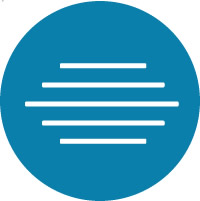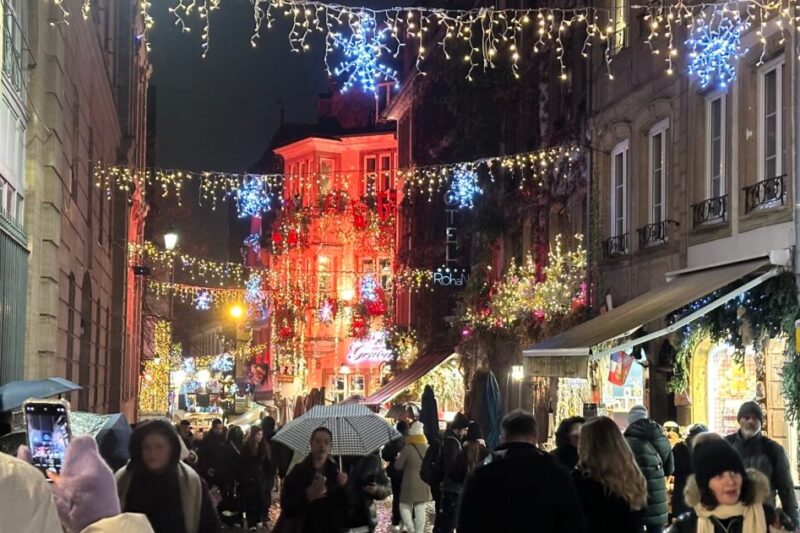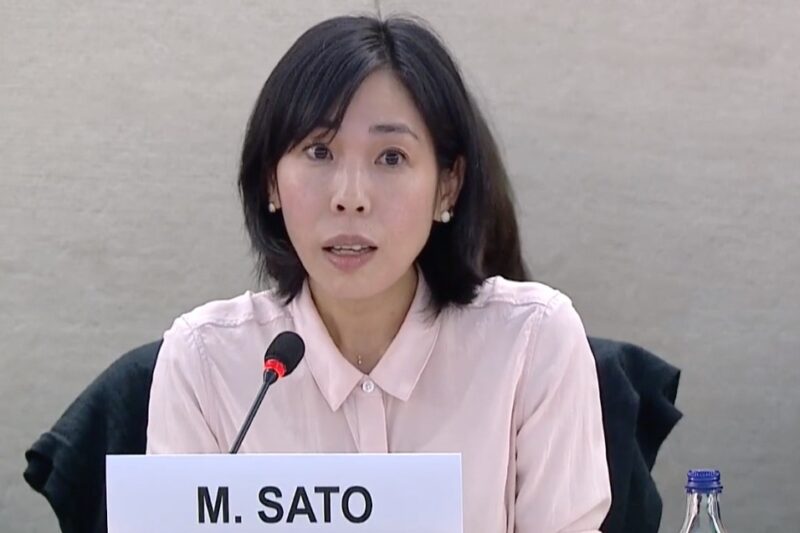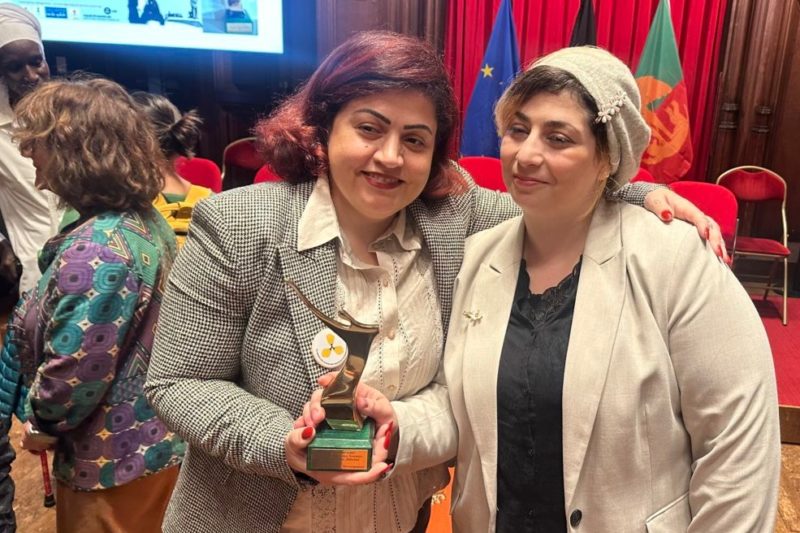The roots of the women, life, freedom movement (2/2)
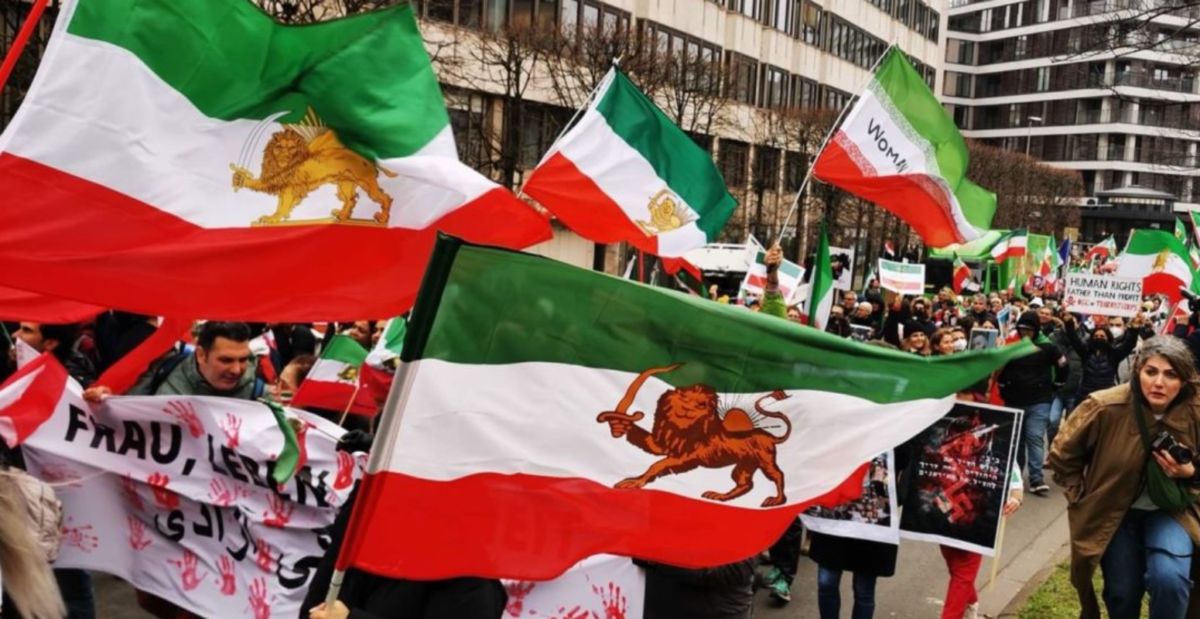
"Mahsa" is the code name for the movement’s fight against women rights and discrimination in Iran.
As much as half of Iran’s population is believed to belong to ethnic or religious minorities. Despite constitutional guarantees of equality and Iran’s international legal commitments, discrimination and repression of minority communities, who have been demanding greater respect for their cultural and political rights, has intensified in recent years, notably since the election of hardline President Mahmoud Ahmadinejad in 2005.
In one word, it can be said that « Mahsa » is the code name for the movement’s fight against « all-round discrimination and oppression » in Iran. Over its 44 years of oppressive rule, the Islamic Republic regime has allowed clear discrimination in the following fields:
1- Women and girls
2- Ethnic minorities (for example Kurdish, Balouch, Arab, Turkemen, Azeri, etc.)
3- Religious minorities (Sunnies, Bahais, Jewish, Zoroastrians, Gonabadi dervishes, Kurdish Ahl-e Haq, Christian converts and atheists)
4- Gender and sexual minorities (LGBTQ community)
5- Guilds and unions (journalists, workers, teachers, lawyers, athletes, artists, IT activists and others)
6- Environmental, Human right and children’s rights activists
Extremely important and sensitive
The issue of ethnic and religious pluralism in all countries has been one of the main concerns of politicians, and when this issue is linked to national security, it becomes extremely important and sensitive. The Islamic Republic contends that the existence of ethnic differences can always potentially be the source of temporary tensions or the formation of separatist factions with long-term consequences for national security. Therefore, the regime always tries to suppress these minorities and keep them in poverty and unemployment.
Dozens of Iranian (Baloch and non-Baloch) “fuel carriers” and goods transporters in the provinces of Sistan and Baluchestan, Kerman, Hormozgan and Kurdistan are killed every year after being fired on by IRGC agents. These people are technically smugglers. They smuggle hugely subsidised items such as petrol to neighbouring countries such as Pakistan and Turkey to sell at a higher price, which is against the law. Therefore the « fuel carrier » euphemism is used in Persian to contradict the government’s harsh rhetoric. Why? For many people in these areas, this is the only way to earn a living, as there are very few legal employment opportunities.
With its roughly 700 km of coastline and rich natural resources the southeastern province of Sistan and Baluchestan stands out in the region for its strategic geopolitical importance. Yet, in Iran, the Baloch people are systematically deprived of education, health, economic and cultural infrastructure:
- Many Baloch patients have to travel to neighbouring provincial hospitals for treatment. The highest level of maternal and paediatricmortality in Iran is found in Balochistan.
- Due to insufficient educational facilities and teaching staff, annually about one hundred thousand Baloch children cannot attend school and a high number leave education, while the remaining students’ educational attainment in general is much lower than the country’s average
- The highest levels of unemployment and people living below the absolute poverty line in Iran is recorded in Balochistan.
- In many areas of Balochistan people do not have clean drinking water and many children have died drowning in rainwater collection pools called “HOT’AK”.
- Due to governmental demographic changes, about 100,000 Baloch are deprived of having birth certificates and are stateless.
- Based on an Amnesty International report, over 30% of people executed (mostly on drug trafficking charges, as a result of the province bordering both Afghanistan and Pakistan which are the source of opium and heroin) belong to the Baloch ethnic group while they only make up 4-5% of Iran’s population.
- On Friday 31 September 2022 more than a hundred peaceful protesters were shot to death and several hundred were injured in just one hour. Over 20 of those killed in the protests were children under 18. Baloch were killed, wounded, arrested and suppressed more violently than anywhere else in Iran, although other minorities like Kurds will contest this claim.
Kurds are estimated to constitute as much as 10% of the population of Iran and originate from different groups of people with various linguistic and cultural backgrounds. They are mostly settled along Iran’s borders with Iraq and Turkey.
Not a single Sunni mosque in Tehran
Iranian Kurds, most of whom are Sunni Muslims, face discrimination because of their religion, even though Sunni Islam is recognized and accorded formal legal standing in Iran. The religious institutions of Sunni Kurds are generally blocked, while those of Shi’as are encouraged and supported by the state. There is not a single Sunni mosque in Tehran and, according to reports, the government has restricted the expansion of Sunni mosques that exist elsewhere in the country.
Other religious groups include the mainly Kurdish Ahl-e Haq, most of whose members live in Kermanshah and in or around the big cities. Their faith, which shares aspects of Islam’s tenets, embodies Kurdish religious identity. The Ahl-e Haq are not recognized under Iranian law and their rituals are prohibited. They are also banned from discussing their faith with the media. In recent years senior state officials have required school heads to report whether there are any members of “subversive sects” among staff or students and reminded the heads that “any activity and propaganda” by members of these groups “is forbidden”.
Arrested, detained, and imprisoned
Moreover, the Iranian Islamic regime does not have an acceptable report card when it comes to religious minorities. Just on 8 May, the authorities executed Yousef Mehrdad and Sadrollah Fazeli Zare by hanging for crimes including blasphemy, insulting the religion of Islam, the Prophet Muhammad and other « sanctities, » the judiciary’s Mizan website reported.
The Baha’is, Iran’s largest non-Muslim religious minority, are routinely arrested, detained, and imprisoned. They are barred from holding government jobs, and their shops and other enterprises are routinely closed or discriminated against by officials at all levels. Young Baha’is are prevented from attending university, and volunteer Baha’i educators who have sought to fill that gap have been arrested and imprisoned.
Added to that, the government does not let them bury their dead in their own Golestan cemeteries and according to the reports, Iranian Security officers buried six Bahi people in unmarked graves in Khavaran cemetery without letting them carry out their religious ceremonies.
Last week : The women, life, freedom movement in Europe (1/2)
